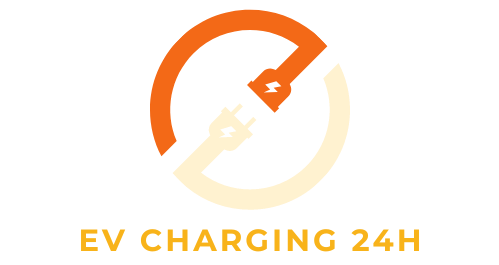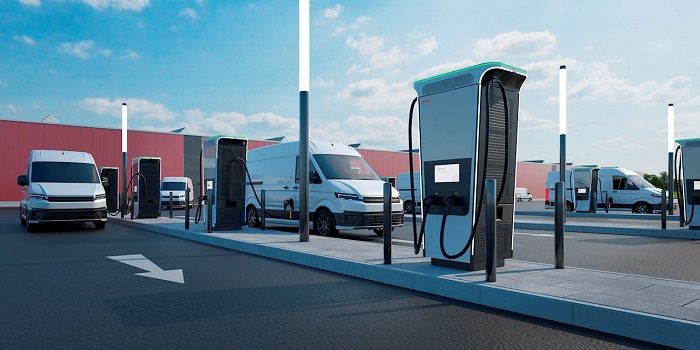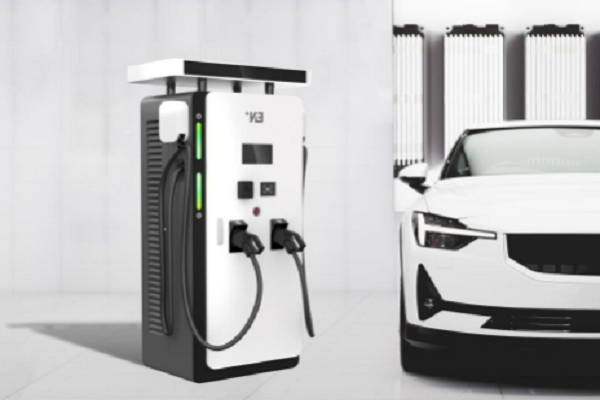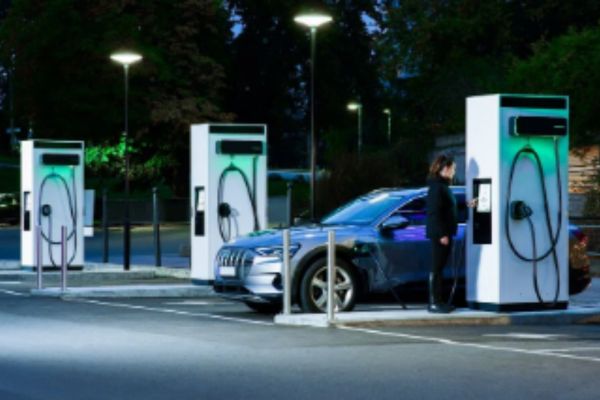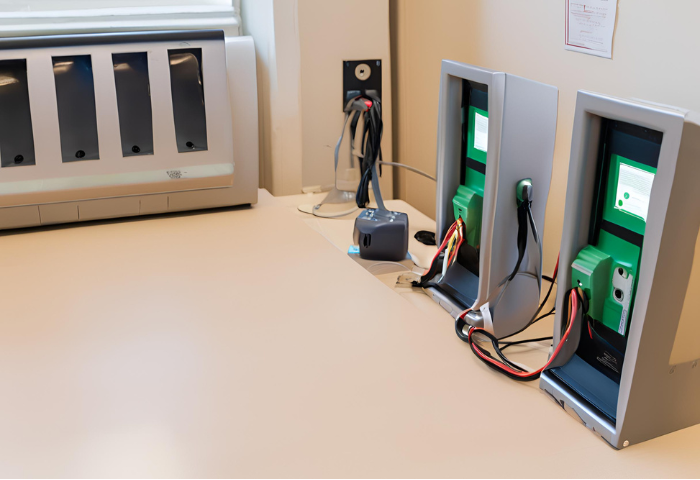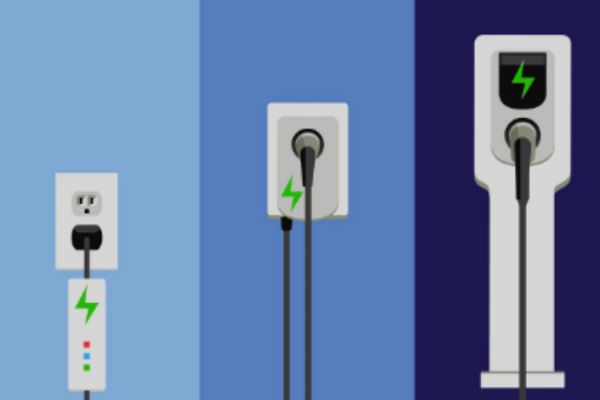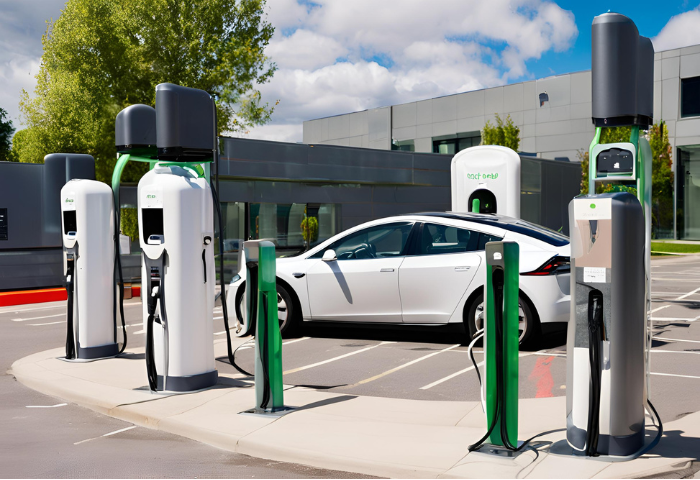Discover the Best Practices for Installing an Abb Level 3 EV Charger
ABB is a leading manufacturer of electric vehicle charging solutions, including Level 3 DC fast chargers. These chargers are capable of delivering up to 350kW of power, enabling EVs to charge from 0% to 80% in as little as 15-30 minutes. This makes them significantly faster than Level 2 chargers, which typically take several hours to fully charge an EV.
What is an Abb Level 3 EV Charger and How Does it Work?
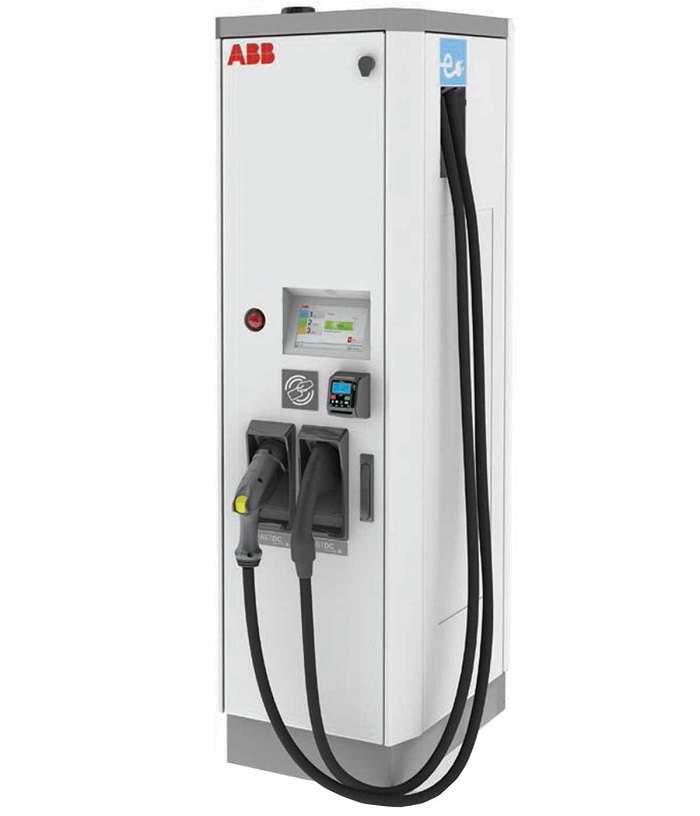
Understanding the Power Output of Level 3 Chargers
Level 3 chargers, also known as DC Fast Chargers, are the most powerful option for electric vehicle (EV) charging, offering significantly faster charging times compared to Level 1 and Level 2 chargers. These chargers typically operate at high voltages (400–900 volts) and can deliver up to 350 kW of power, enabling EVs to regain a substantial amount of range in a short period of time.
However, the actual power output that an EV experiences during a Level 3 charging session depends on a number of variables, including the charger’s capabilities, the vehicle’s battery capacity and restrictions, and the battery’s current state of charge. It’s important to understand these factors to accurately estimate charging times and optimize the charging experience.
The Difference Between Level 1, Level 2, and Level 3 Chargers
Electric vehicle (EV) charging comes in various levels, each offering distinct charging speeds and power outputs. Level 1 chargers, typically found in homes and using standard 120-volt outlets, provide the slowest charging rate, taking several hours to fully charge an EV battery.
Level 2 chargers, commonly found in public charging stations and using 240-volt outlets, offer a significantly faster charging experience, typically taking a few hours to fully charge an EV. Finally, Level 3 chargers, also known as DC fast chargers, are the most powerful option, utilizing high-voltage direct current to deliver a full charge in as little as 30 minutes.
Choosing the right charger depends on individual needs and driving habits, with Level 1 chargers being suitable for overnight charging at home, Level 2 chargers ideal for regular charging on the go, and Level 3 chargers perfect for long-distance travel or quick top-ups.
Benefits of Installing an Abb Level 3 EV Charger
Installing an ABB Level 3 EV Charger offers several benefits for electric vehicle (EV) drivers, primarily due to its fast-charging capabilities and enhanced convenience:
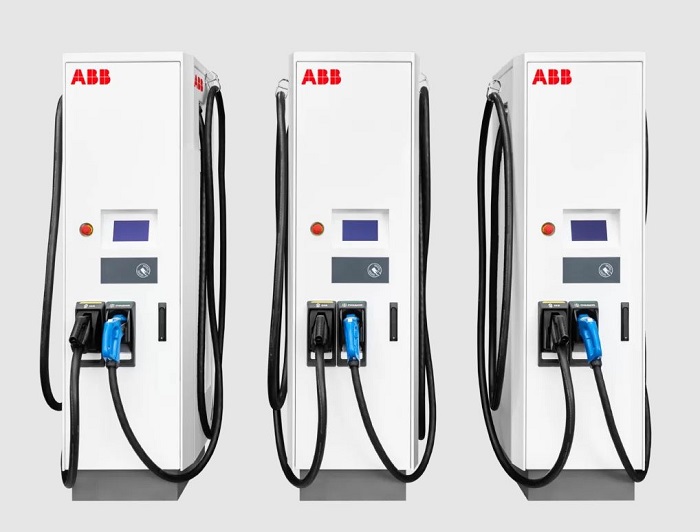
- Fast-Charging Capabilities of Level 3 Chargers
ABBchargers EV Chargers are designed to provide rapid charging speeds, significantly reducing the time required to recharge EV batteries compared to Level 2 chargers. With charging rates ranging from 50 kW to 350 kW or more, ABB Level 3 chargers can replenish a substantial portion of an EV’s battery capacity in a short amount of time.
This fast-charging capability is particularly beneficial for EV drivers who need to top up their batteries quickly during long journeys or in high-traffic areas, allowing them to resume their travels with minimal downtime.
- Enhanced Convenience for Electric Vehicle (EV) Drivers
By installing ABB Level 3 EV Chargers, operators can offer EV drivers greater convenience and flexibility when it comes to charging their vehicles. With fast-charging stations installed along highways, major travel routes, and in urban centers, EV drivers have access to quick charging stops whenever needed.
This convenience is especially valuable for drivers undertaking long-distance travel, as they can plan their journeys with confidence, knowing that fast-charging infrastructure is available to support their needs.
- Improved EV Adoption and Accessibility
Installing ABB Level 3 EV Chargers contributes to the wider adoption of electric vehicles by addressing common concerns such as range anxiety and charging infrastructure availability. As more Level 3 chargers are deployed, EV drivers are encouraged to switch to electric mobility, contributing to reduced greenhouse gas emissions and improved air quality.
Furthermore, the accessibility of fast-charging infrastructure provided by ABB Level 3 chargers makes electric vehicles a more viable option for a broader range of drivers, including those without access to home charging solutions or who rely on their vehicles for frequent travel.
Key Considerations Before Installing an Abb Level 3 EV Charger
While ABB Level 3 EV chargers offer significant benefits, there are crucial factors to consider before installation to ensure they align with your needs and target audience:
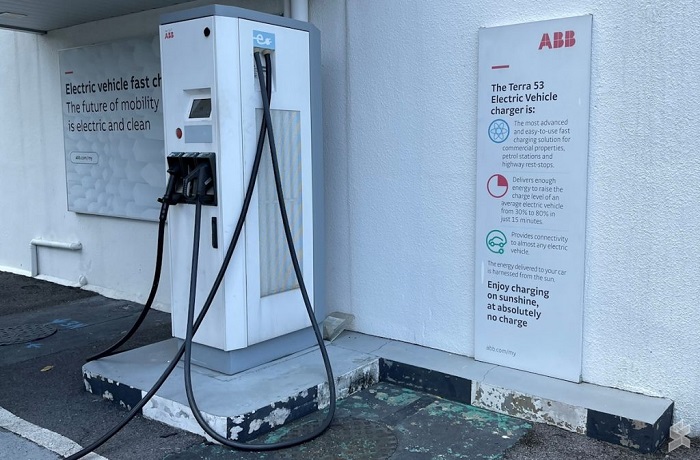
Availability of DC Fast Charging Stations
- Market Saturation: Consider the existing landscape of DC fast charging stations in your area. If there’s already a high density of fast-charging options, installing another one might not yield significant customer advantages.
- Target Audience: Identify your primary users. Are you catering to public EV drivers, a fleet of company vehicles, or employees who need to charge during work hours? Understanding their needs will help determine the ideal location and usage patterns.
Understanding Charge Time for Electric Cars
- Battery Capacity: Different EVs have varying battery capacities. A large battery will take longer to charge than a smaller one, even with a Level 3 charger. Research the typical battery sizes of the EVs most likely to use your station.
- Car’s DC Fast Charging Capability: Not all EVs can handle the maximum power output of a Level 3 charger. Consult car manuals to understand each model’s DC fast charging limitations. This will influence the actual charging times experienced by users.
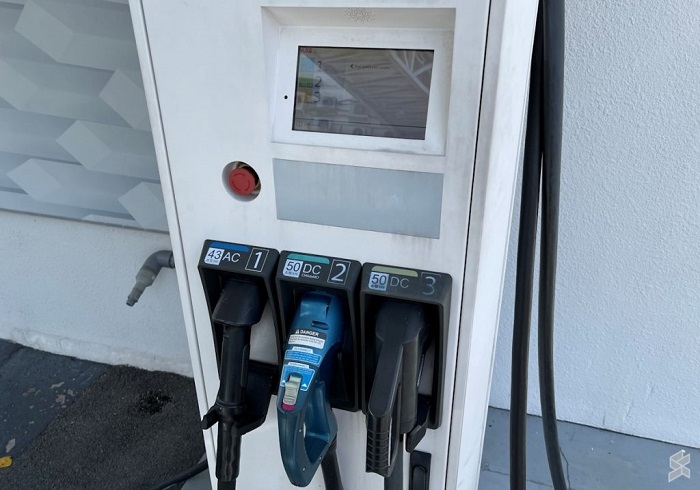
Location and Accessibility of Charging Stations
- Convenience and Visibility: Choose a location that’s convenient for your target audience and has good visibility to attract potential customers. Consider factors like proximity to highways, workplaces, or shopping centers.
- Land Availability and Costs: Ensure you have sufficient space for the charger installation and consider any necessary civil works or modifications to accommodate the charging station. Factor in land rental or ownership costs.
- Infrastructure Requirements: Level 3 chargers require a high-power electrical connection. Assess your existing electrical infrastructure and potential upgrade costs to support the charger’s power demands.
Additional Considerations:
Permits and Regulations: Obtain necessary permits and ensure compliance with local regulations regarding EV charger installation.
Operation and Maintenance: Factor in the ongoing costs of electricity, maintenance, and potential repairs for the ABB Level 3 charger.
Return on Investment (ROI): Carefully evaluate the upfront costs, operational expenses, and potential revenue streams (if applicable) to determine the charger’s projected ROI timeframe.
Tips for Maintaining and Troubleshooting Abb Level 3 EV Chargers
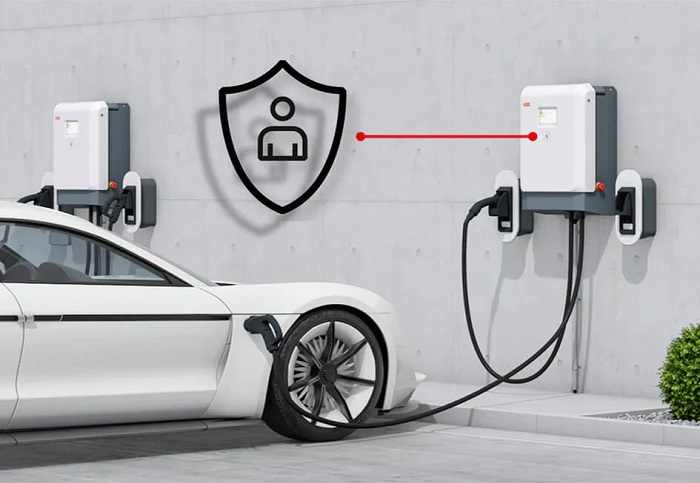
ABB offers a wide range of Level 3 EV chargers, and maintenance practices will vary depending on the specific model. However, here are some general tips and common issues to consider:
- Refer to the manual: The most crucial step is to consult the user manual for your specific ABB Level 3 charger model. It will provide detailed maintenance instructions and troubleshooting steps recommended by the manufacturer.
- Regular inspections: Conduct routine visual inspections to check for any physical damage to the charger, cables, or connectors. Look for signs of wear, corrosion, or overheating.
- Cleaning: Keep the charging unit clean and free of dust, debris, or moisture. Follow the manufacturer’s cleaning instructions to avoid damaging the equipment.
- Software updates: ABB may release software updates for their chargers to improve functionality or address bugs. Stay updated on these and have them installed by qualified personnel.
- Preventive maintenance: Schedule regular preventive maintenance checkups with a certified technician to ensure the charger is operating efficiently and identify any potential issues before they escalate.
Common Issues Faced by EV Drivers with Level 3 Chargers
- Charging not initiating: This could be due to several factors, like an incompatible car model, a faulty connection, or issues with the charger itself.
- Slow charging: While Level 3 offers faster charging, a significant slowdown could indicate a problem with the charger’s power output or a limitation of the connected car’s DC fast charging capability.
- Error messages: The charger might display error codes on its screen. Consult the user manual for troubleshooting steps based on the specific error code.
- Payment issues (if applicable): For stations with payment systems, there might be issues with card readers, app connectivity, or network problems.
Best Practices for Ensuring Smooth Operation of Level 3 Chargers
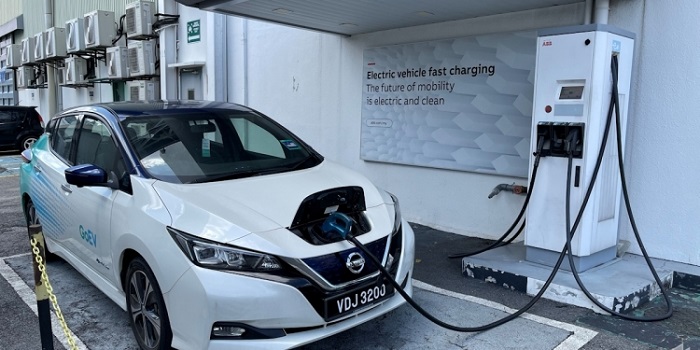
- Restart the charger: Sometimes a simple restart can resolve minor glitches. Follow the manufacturer’s instructions for restarting the specific charger model.
- Check connections: Ensure all cables are securely plugged into the charger and the car’s charging port.
- Consult the user manual: The user manual will provide specific troubleshooting steps for common issues.
- Contact support: If the problem persists, contact ABB customer support or the station operator for further assistance.
Important Note: Do not attempt to repair the charger yourself. Level 3 chargers deal with high voltage and require qualified technicians for repairs to ensure safety and avoid further damage.
Ensuring Smooth Operation: By following these best practices and addressing common issues promptly, you can help maintain the smooth operation of ABB Level 3 EV chargers and ensure a reliable charging experience for all users. Remember, referring to the specific model’s user manual and contacting qualified personnel for repairs is crucial for safety and optimal functionality.
ABB Level 3 EV chargers play a crucial role in supporting the growing adoption of electric vehicles. Their fast charging speeds and high power output make them ideal for long-distance travel and public charging stations.
As the demand for EV charging infrastructure continues to rise, ABB Level 3 chargers are poised to become a key component of the future of electric mobility.

Henry Michael is a leading expert in EV charging station research, specializing in innovative solutions for electric vehicle infrastructure. With a passion for sustainability and technological advancement, he is dedicated to advancing the accessibility and efficiency of EV charging worldwide.
